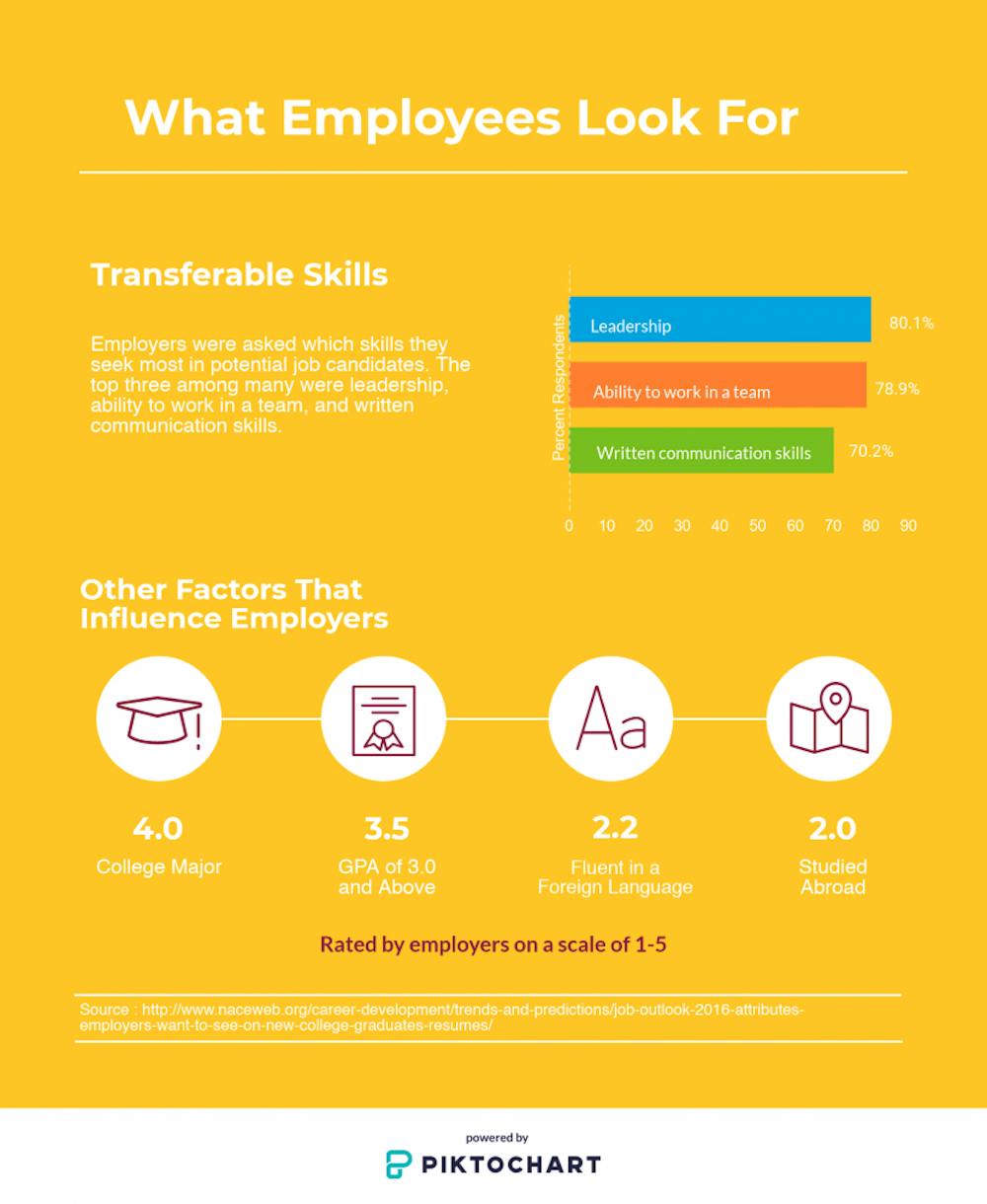Despite the various reasons one might have for attending ASU, all students seek a quality education and a better chance at future employability. Because of this, it’s necessary students realize their education shouldn’t consist of just the knowledge memorized in class.
The content that makes up lectures, the textbooks we buy and the tests we take are important, but the skills developed through classes are equally as important. Students should become more aware of what abilities can be developed through everyday coursework to maximize the gain from their education.
While many students focus on getting a good grade and completing their course to earn their degree, they should put an equal focus into bettering potential skills from class to class.
All classes have different characteristics. There are large lecture-based classes and small discussion-based classes, all having to do with different disciplines. As such, it’s important to figure out what skills suit a course in particular.
“A strategy for English may not be a good strategy for a science class, and a strategy for a science class might not be a good strategy for a math class,” said Danielle McNamara, an ASU psychology professor and Director of the Science of Learning and Educational Technology Lab.
Many undergraduate students begin their education in large lecture halls. These classes include vast amounts of information and minimal interaction on a student’s part, so it is important to develop strong listening and note-taking skills, among other things.
However, other classes might call for different abilities. For example, a small discussion-based class such as The Human Event involves reading and discussing complex texts, as well as argumentative essays. This grants the opportunity for students to improve both written and verbal communication skills, which are highly valued by employers.
Many classes also offer occasional projects, such as group presentations, that provide the opportunity to learn leadership and teamwork skills. This is especially important as most employed Americans agree presentation skills are crucial to success.
These projects and exams offer more than a chance to reflect facts and concepts learned during the course. It's crucial that students approach these opportunities to better their skill set.
When students know what kind of skills are suited for a particular class, they can begin to employ strategies to develop them and make up for any weak points.
“Students have to have strategies in order to compensate for skills," McNamara said. "A skill by its very definition is something that one acquires over a long period of time with practice."
For instance, a student who wants to improve their public speaking skills could benefit from a number of strategies. They might prepare before a speech by making a list of the topics they would like to discuss, so during the speech they don’t have to worry about forgetting information. They might also try practicing in front of a mirror or a friend in order to get comfortable.
Professors can also be a helpful resource for developing strategies. To continue with the public speaking example, a student might ask a professor after class or during office hours for advice on how to improve. A professor can give tailored and experienced feedback to facilitate faster growth.
With all this in mind, it's important that students take a wide range of classes that focus on different skills to ensure that upon graduation, they not only earn their degree, but have strengthened crucial transferable skills as well.
The little bit of effort that comes from deliberate strategizing can help students narrow gaps in their performance and help improve abilities. In doing so, students gain more than just knowledge and are more prepared for future classes and employments.
Reach the columnist at jkbeneve@asu.edu or follow @JacobBenevento on Twitter.
Editor’s note: The opinions presented in this column are the author’s and do not imply any endorsement from The State Press or its editors.
Want to join the conversation? Send an email to opiniondesk.statepress@gmail.com. Keep letters under 500 words and be sure to include your university affiliation. Anonymity will not be granted.
Like The State Press on Facebook and follow @statepress on Twitter.





